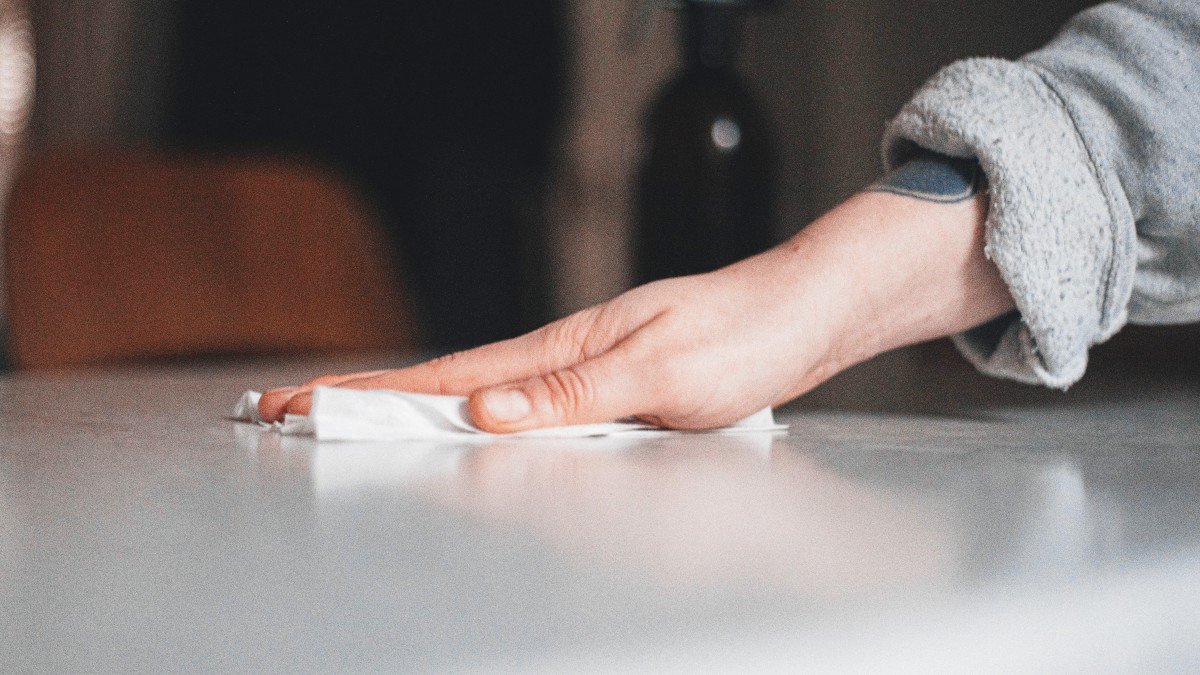Can You Compost Disinfectant Wipes?

Disinfectant wipes might be the ideal way of cleaning up surfaces and disinfecting them at the same time, but how good for the environment are they?
Getting rid of your wipes properly is important!
Because of their synthetic fibers, disinfectant wipes aren’t recyclable or biodegradable. They make up a large part of non-biodegradable waste in landfills.
You should never compost disinfectant wipes. If you put your wipes on a compost heap or in a compost bin, they will break up into tiny pieces which will spread through the rest of the compost.
What happens if you compost disinfectant wipes?
These wipes are typically made from synthetic fibers like polyester, which aren’t compostable or recyclable. The synthetic fibers stop the wipes from breaking down. Instead, they break up into small pieces, ruining the compost and potentially introducing microplastics into the soil.
The chemicals from disinfectant wipes can also enter the soil, disrupting natural microbes and slowing the composting process for the rest of the compost. You may be introducing these chemicals to vegetables or flowers. Similarly, the remains of what you’ve cleaned can affect the compost. They may attract rats, flies, or other unwanted pests or encourage harmful bacteria to grow and spread.
Why are disinfectant wipes bad for the environment?
Like many single-use products, disinfectant wipes get thrown in the trash and transported to landfills, where they remain indefinitely without degrading.
Disinfecting chemicals can also be a big environmental hazard, with some linked to acute and chronic health issues and others resulting in disinfectant-resistant microbes in pipes.
If flushed or rinsed disinfectant enters waterways and water bodies, the chemicals can build up and harm wildlife and make the water unsafe for consumption.
While there are some compostable wipes out there, these wipes usually aren’t disinfecting and are intended for use against grease, dirt, and grime. Green Matters took a look at Clorox’s compostable wipes made from plant-based cloths and noted the FAQ states they don’t disinfect surfaces.
Alternatives to disinfectant wipes
The less you use single-use products, the better. Disinfecting wipes should be the first on the list of single-use cleaning products to replace.
A disinfectant cleaner is a better alternative to use with a washable cloth. You can also use bleach diluted with water and rubbing alcohol as suitable disinfectants – keep a cloth or rag on hand to clean them up and absorb excess chemicals.
Before using a disinfectant cleaner, it’s important to clean the area before disinfecting.
Some products claim to “clean and disinfect” surfaces in one step. But according to the Environmental Protection Agency, you should clean the surface using soap and water to remove dirt before disinfecting. Sometimes organic matter can make a disinfectant less effective, so following the manufacturer’s directions is important to ensure you are disinfecting fully.
If you do use compostable wipes for cleaning (before disinfecting) make sure you know whether they’re good for home composting or if they need to be composted by industrial facilities. If they don’t specify which, assume they need industrial composting.
